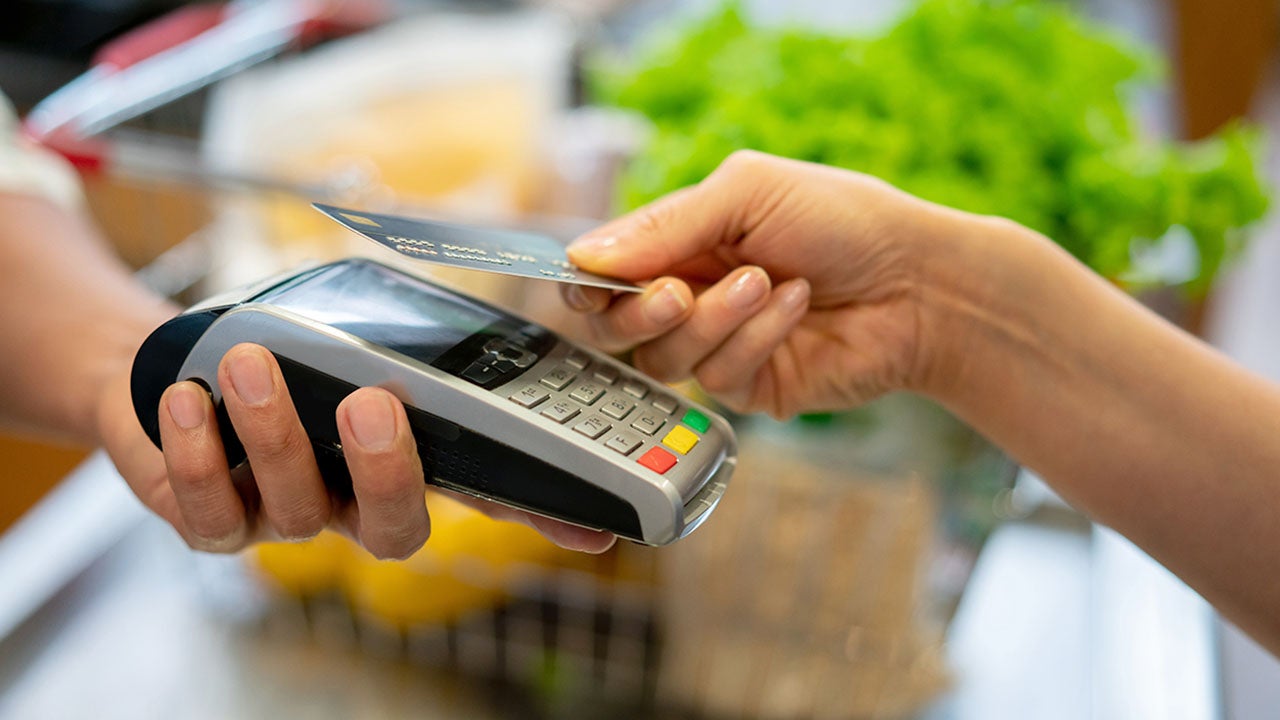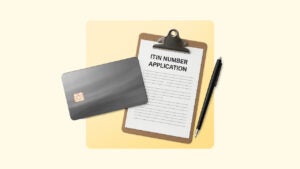Can I get a credit card without a Social Security number?

Key takeaways
- You can get a credit card without a Social Security Number (SSN) using alternatives like an individual tax identification number (ITIN) or passport.
- Major issuers like American Express and Bank of America accept these identifiers.
- Credit bureaus don’t require an SSN to track your credit history; they use details like your name, birthdate and address instead.
- Build credit without an SSN through secured cards, passbook loans or authorized user status, but always make timely payments to strengthen your credit profile.
When applying for a credit card (or any credit, for that matter), the odds that you will run into a box for your Social Security number are quite high. But what if you don’t have one? Can you still apply? More importantly, will you be accepted? Read on to find out more.
Is an SSN necessary to get a credit card?
While it may be hard to believe, there was once a time in the not-so-distant past when Social Security Numbers were necessary only when a person was ready to go to work for the first time at a place that would take taxes out of their paycheck.
It wasn’t until August 1987 that the Social Security Administration began a three-state pilot program that allowed parents to request an SSN for their newborns. The so-called “Enumeration at Birth Process” (EAB) was so popular that today, about 99 percent of parents in the U.S. take advantage of it when they have a child.
However, not everyone has an SSN, especially those new to the U.S. The good news is that there are other ways to successfully apply for a credit card without having one.
While you may not need an SSN to access credit, with only one or two exceptions, you will need a credit file at a credit bureau. Fortunately, the bureaus don’t require an SSN to set up, report or score your credit history.
Can you get a credit card with an ITIN?
According to the IRS, the individual tax identification number (ITIN) is a “tax processing number” for people who do not have and are not eligible for an SSN.
Unlike an SSN, these numbers generally must be periodically renewed. The IRS says on its website that these numbers serve no purpose other than federal tax reporting.
However, you may be able to use an ITIN when applying for a credit card because it can serve as an identifier to the credit card issuer (along with your other information). In some instances, you may also be able to use your passport number.
Which major issuers don’t require an SSN?
Each issuer has its own requirements, but American Express and Bank of America will accept applications from those with either ITINs or passport information.
Capital One and Wells Fargo will accept those with ITINs, and Chase allows applicants to use their ITIN instead of an SSN. Discover, Citi and Credit One Bank require an SSN to apply for one of their cards.
What other cards can you apply for without an SSN?
International students may be able to take advantage of cards explicitly targeted for them, which do not require an SSN. These cards — and others that are not necessarily only for students — use alternative (or nontraditional) underwriting methods. Many of these cards don’t require an SSN or an ITIN but can use passport information.
However, most require a bank account that can be linked to the card. Depending on the issuer, these may or may not be considered secured cards.
Other ways to build credit if you don’t have an SSN
Note that the three credit bureaus — Experian, TransUnion and Equifax — can identify you by means other than your SSN. The credit bureaus will identify you in the following order:
- Your name
- Your birthdate
- Your address
- Your Social Security Number
Secured credit cards
Secured credit cards are excellent for building credit for those with little to no credit history. Secured cards differ from unsecured cards in that you secure a line of credit by paying a deposit, usually equal to your credit limit, to guarantee your payments.
Secured card activity is reported like any other credit card and affects your credit score similarly. To build your credit, ensure the card you choose reports to credit reporting agencies; otherwise, it won’t help your credit file or credit score.
Passbook loans
Passbook loans work in much the same way. You “borrow” the money you deposit at a bank or credit union and then pay it back (to yourself) in installments. A bonus to a passbook loan is that it counts as an installment loan on your credit report and gets you extra points on your FICO score under the credit mix category. Again, make sure the financial institution will report to the credit bureaus.
Become an authorized user
You can become an authorized user on a family member’s or friend’s existing credit card. The card’s credit history is reported in the owner’s and authorized user’s credit files. The account owner doesn’t have to give you a credit card to use if they don’t want to — its history will still be reported on your credit file, giving you some extra points.
Credit-boosting products
Products like Experian Boost and FICO XD or UltraFICO can help you build credit by drawing on information from your bank account, utility payments, cellphone payments and other obligations. While these programs may not benefit your score, they can still be valuable for building your credit profile.
The bottom line
Credit card issuers don’t approve or reject applications based on your SSN. They do so based on your credit file, so the good news is that you don’t need an SSN to start building your credit report. Credit reporting and, thereby, credit cards and other forms of lending can be available to you through different avenues besides an SSN.
It’s also a myth that you need a driver’s license, voter registration card or even a library card to establish a credit file at the credit bureaus. But you do need to be sure to pay your bills — all of them — on time, every time. Credit reporting, which shows how you handle your money and your obligations, will ultimately determine your ability to score a credit card.
Why we ask for feedback Your feedback helps us improve our content and services. It takes less than a minute to complete.
Your responses are anonymous and will only be used for improving our website.






